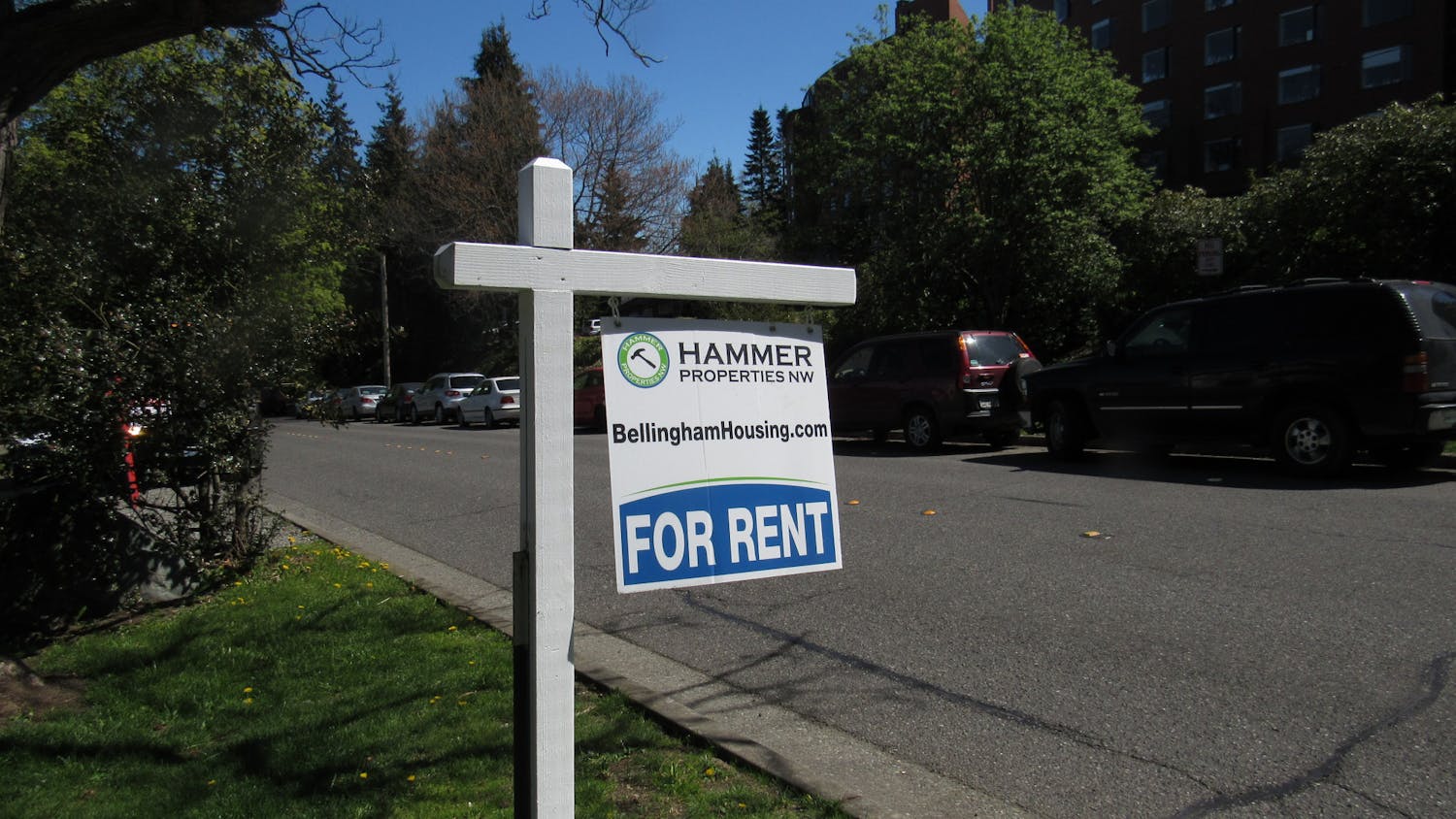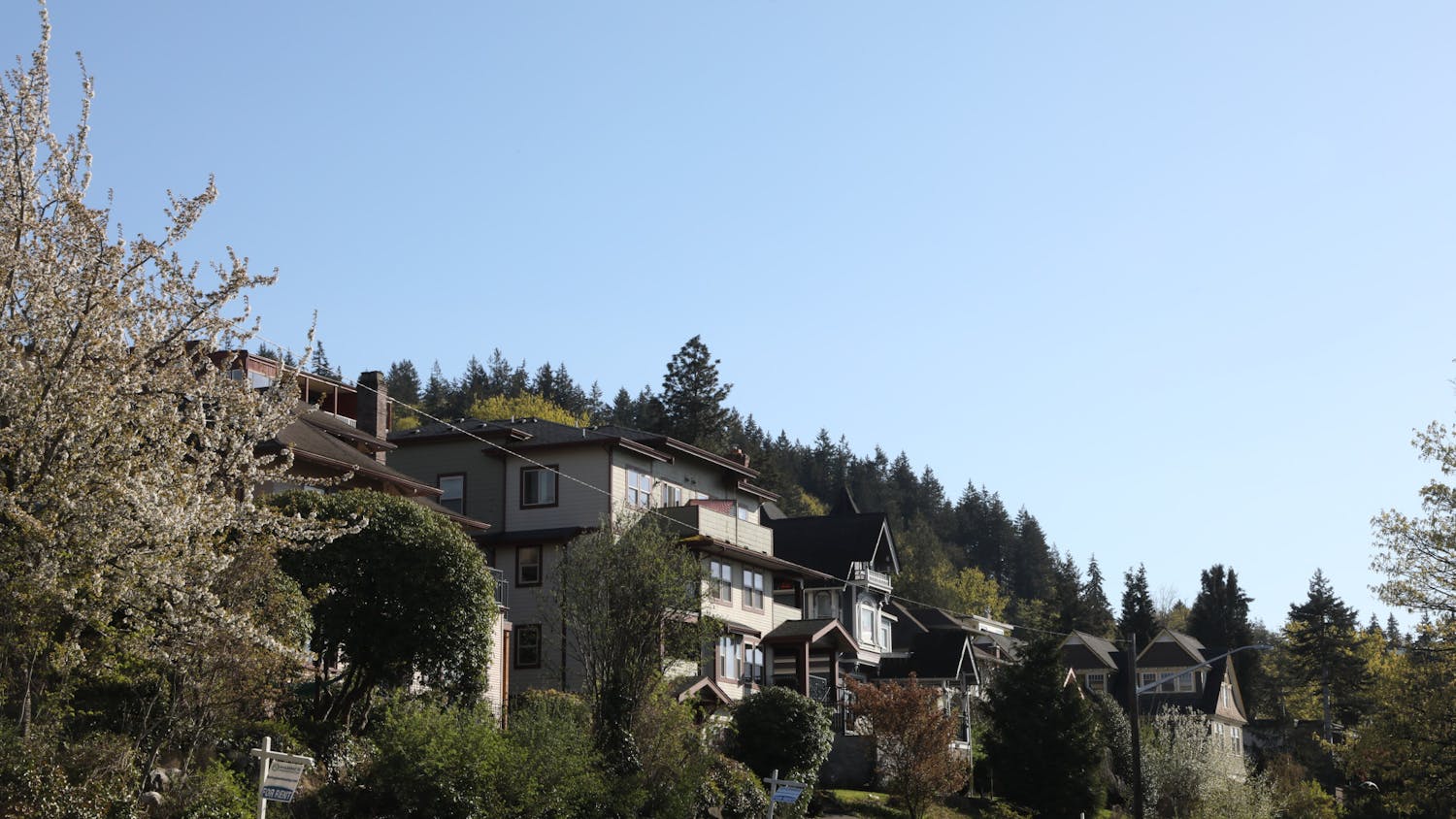
With the protection Gov. Jay Inslee’s “Stay Home, Stay Healthy” order provides Washingtonians, it also creates barriers as it requires citizens to isolate. To combat the lack of socialization, many neighborhoods take part in an evening howl.
“The evening howl happens at 7 p.m. in the Happy Valley, Fairhaven area,” Shannon Laws, a Happy Valley resident, said. “It is fantastic. It’s wonderful and everyone should be doing it.”
Laws said she stumbled upon the howl by chance as she was out for a walk one evening and a neighbor invited her to participate with them. She said as she waited in anticipation, she didn’t know what to expect.
“I sat and waited and sure enough the whole neighborhood, at least three blocks either way, just started howling right at 7 p.m.,” Laws said. “It was amazing to hear, I started laughing and it filled me with joy. It was so fantastic just to hear people expressing themselves in that way. It lifted my spirits.”
The howl has provided a way for a variety of neighborhoods to pull together, Laws said. In this time when physical gatherings are no longer allowed, these groups have created a way to make their presence known, she said.
“We’re coming together through an action and a sound,” Laws said. “Some of the folks we’re howling with are people we may not actually know but somehow you feel like you know them just by howling with them. Even though you can’t physically see them, you can hear them. There’s that connection that’s absolutely charming.”
The act of howling has encouraged an attitude of joy, Laws said. To offer a deeper expression of how valuable this activity is, Law said the sensation of howling is comparable to the scent of a cinnamon candle.
“Definitely cinnamon,” Laws said. “It’s a nice, warm, homey feeling.”
The evening howl has become a tradition, not only in Bellingham, but in neighborhoods throughout the nation. One of the largest Facebook groups supporting this movement is titled ‘Go Outside and Howl at 8pm.’ It was founded by Colorado residents Shelsea Ochoa and Brice Maiurro. The group started on March 27 and has gained over 582,000 members, said group administrator Ryn Prestia Schear.
“It just boomed almost instantaneously,” Schear said. “It’s a cathartic and freeing way of expressing any emotion that you may have right now. Whether it be around COVID-19 or not, ultimately it’s a signal that we are all connected in this time.”
The Facebook group has functioned as a way for individuals to connect within their larger communities through posts and videos emphasizing the importance of howling, Schear said. They said some people howl for the loss of a loved one and others howl for the loss of their graduation year. All types of pain are welcomed in this online community, Schear said.
“Emotionally, mentally and physically we have a lot to let go of right now. A lot of energy is not getting processed,” Schear said. “This gives a free, accessible way to get that energy through and process it out.”
Schear works for the Colorado Suicide & Prevention Hotline. Since the beginning of the pandemic, the number of calls has increased by 27%, they said.
“[Howling is] our free, accessible therapy,” Schear said. “We need to know that we are supported and that others suffer with us. When we don’t know that it’s very hard to push through.”
The emotional and mental impact that COVID-19 has in the U.S. interrupts some of the core values within communities, Western professor of psychology David Sattler said.
“In a catastrophic stressor that’s affecting an entire community, it threatens our sense of control, predictability, safety and trust,” Sattler said. “Our lives are turned upside down.”
Sattler specializes in the study of psychological distress and behavior during conflict. The importance of a routine is a basic technique that people use to establish control, especially during times of hardship, Sattler said.
“Howling, if it happens at the same time every night, creates a sense of predictability and control,” Sattler said. “It may help reestablish feelings of trust in one another. One very simple act may carry over into these other areas that are at the core of what this pandemic is challenging of its citizens.”
Sattler said the act of howling can be healing in a variety of ways because of how it implements the idea of social support.
“A lot of this goes to the core of social support which really has very important psychological benefits and there’s evidence to show that it has health benefits as well,” Sattler said. “Social support can help people cope with stressful situations, alleviate some emotional distress or improve self-esteem. It can promote healthy lifestyle behaviors.”
For Bellingham residents, howling has been a simple solution for the lack of interaction as well as a remedy to heal the stress of existing during this pandemic, Laws said.
“We’re under a lot of stress right now more than ever and when there was a great release of tension, I just started to laugh,” Laws said. “It’s good for you, the body and the community. It’s good medicine.”
Not everyone has been on board with this nightly tradition, Laws said. After posting online to encourage the evening howl, Laws received a comment from a Happy Valley resident discouraging the activity.
“Music … singing or an instrument would be nice, but a neighborhood full of people imitating animals? No thanks,” the comment said. “I mean, what is the point of that kind of noise anyhow?”
Laws said she empathizes with community members who are shy about howling but has no time for people who spread negative energy.
“Those people are sucking on lemons,” Laws said. “They are folks that need to howl.”
Despite some disagreement within communities, Schear encouraged those who don’t agree with howling to view it as a step toward a better tomorrow.
“I heard ‘What does this do? What purpose does this serve? We should be doing something more important,’ I would say to them: ‘You’re right and this is the first step,’” Schear said. “We need to show that we can all collectively come together and do something. Today it’s howling, tomorrow it’s changing something within our political arena.”
Schear said using resources that are available to people is also important. Crisis lines are there to offer support to those who need it, they said.
“It’s important to know that this won’t last forever,” Schear said. “Our world is changing and we have to find ways to cope that work for us. This howling is a great way of coping right now and it's a reminder that you are not alone, that you are supported and that others care.”





